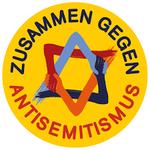 Narrenschiffer schrieb:Und das "Kabel" vom 24. August war eindeutig:
Narrenschiffer schrieb:Und das "Kabel" vom 24. August war eindeutig:
Nicht wirklich. Selbst McNamara sagte, dass die Idee war, Diema abzusetzen und ins Exil zu schicken. Dass Diem sich in der bevölkerung äußerst unbeliebt gemacht hatte, war ersichtlich.
Deswegen war zweifelhaft, ob Diem als
Verbündeter, als Präsident von Südvietnam, aufrechterhalten werden konnte.
 Narrenschiffer schrieb:If, in spite of all your efforts, Diem remains obdurate and refuses, then we must face the possibility that Diem himself cannot be preserved.
Narrenschiffer schrieb:If, in spite of all your efforts, Diem remains obdurate and refuses, then we must face the possibility that Diem himself cannot be preserved.
 Narrenschiffer schrieb:Da kann er später noch so rumjammern. Ich nehme das Geheule nicht ab.
Narrenschiffer schrieb:Da kann er später noch so rumjammern. Ich nehme das Geheule nicht ab.
Kennedy schätzte die Situation falsch ein- er dachte, die putschenden Generäle entheben Diem seines Amts und lassen ihn ausfliegen. Kennedy war in dieser Situation naiv. Deswegen war er geschockt von der Ermordung.
Es gab aber von seiten JFKs keinen konkreten Mordauftrag. grünes Licht für den Sturz Diems
 Narrenschiffer schrieb:Kennedy hat sofort nach der Präsidentschaftsübernahme den NSC um ein Drittel seiner Mitglieder verkleinert. Er war ja keine Dödel.
Narrenschiffer schrieb:Kennedy hat sofort nach der Präsidentschaftsübernahme den NSC um ein Drittel seiner Mitglieder verkleinert. Er war ja keine Dödel.
Genau. Die gescheiterte Schweinbuchtinvasion hatte ihm doch die Augen geöffnet- die Experten des NSC irrten sich gewaltig, es gibt auch Anzeichen, dass Allen Dulles vor JFK wichtige Informationen zurückhielten, um den Präsidenten zu einem Einsatz amerikanischer Streitkräfte zu zwingen.
Seit der Schweinebucht hegte er ein Misstrauen gegenüber der CIA und den Joint Chiefs:
Even more disturbing, this Bay of Pigs history includes CIA meeting notes—which Kennedy never saw—predicting failure unless the U.S. intervened directly.
Afterward, Kennedy accused himself of naïveté for trusting the military’s judgment that the Cuban operation was well thought-out and capable of success. “Those sons of bitches with all the fruit salad just sat there nodding, saying it would work,” Kennedy said of the chiefs. He repeatedly told his wife, “Oh my God, the bunch of advisers that we inherited!” Kennedy concluded that he was too little schooled in the Pentagon’s covert ways and that he had been overly deferential to the CIA and the military chiefs. He later told Schlesinger he had made the mistake of thinking that “the military and intelligence people have some secret skill not available to ordinary mortals.” His lesson: never rely on the experts. Or at least: be skeptical of the inside experts’ advice, and consult with outsiders who may hold a more detached view of the policy in question.
http://www.theatlantic.com/magazine/archive/2013/08/jfk-vs-the-military/309496/Das Schweinebuchdebakel war eine Lernerfahrung für JFK. Seit April 1961 vertraute er nicht mehr blind dem Urteil des NSC- deswegen auch die eigenständigen Initiativen am NSC vorbei.
After the Bay of Pigs debacle JFK felt ill-advised by the JCS on the CIA’s invasion plan.
“Attempting to clear the air, Kennedy met with [the chiefs] in the Pentagon on May 27, 1961. Though no detailed records of the meeting survived, Kennedy at one point apparently lectured the chiefs on their responsibility for providing him with unalloyed advice, drawing on a paper [Gen. Maxwell] Taylor wrote earlier. But the response he got was “icy silence.” (p. 216)
JFK and the JCS barely communicated during the Cuban Missile Crisis in October 1962.
“To manage the crisis, Kennedy improvised through an ad hoc body known as the Executive Committee, or ExCom … Even though the Joint Chiefs were actively engaged in contingency planning throughout the crisis, they were not directly privy to ExCom’s deliberations or even much of the information that passed through it. General Taylor was the sole JCS member on the ExCom and one of its few members with significant military experience … In his memoirs, Taylor acknowledged that some of the chiefs distrusted him. He added, however, that over the course of the crisis he repeatedly volunteered to arrange more meetings with the President, but that none of the Service chiefs showed any interest.” (p. 229)
JFK did not ask the JCS to assess his deal to end the missile crisis.
“The Joint Chiefs were never consulted, nor were they given an opportunity to comment on the strategic implications of this settlement. General LeMay was disappointed that the President, with a preponderance of strategic and tactical nuclear power on his side, had not demanded more concessions from the Soviets. ‘We could have gotten not only the missiles out of Cuba,’ LeMay insisted, ‘we could have gotten the Communists out of Cuba at that time.’” (p. 232)
The JCS thought JFK’s peaceful resolution of the crisis had actually helped the enemy.
“The consensus on the Joint Staff was that the United States had come out on the poorer end of the bargain.” (p. 233)
By the end of 1962, the Pentagon felt its relations with the White House had never been worse.
“By the time the Cuban missile crisis ended, relations between the Kennedy administration and the Joint Chiefs of Staff (Taylor excepted) were at an all-time low. In contrast, Kennedy’s public stature and esteem had never been higher. Lauded by his admirers and critics alike for showing exemplary statesmanship, fortitude, and wisdom in steering the country through the most dangerous confrontation in history, the President emerged with his credibility and prestige measurably enhanced. But to end the crisis he made compromises and concessions that his military advisors considered in many ways unnecessary and excessive.” (p. 233)
The JCS felt that JFK’s successful drive for a partial nuclear test ban treaty in the summer of 1963 diminished its influence even further.
“In contrast, the overall authority, prestige, and influence of the Joint Chiefs of Staff as a corporate advisory body had never been lower than by the time the test ban debate drew to a close. Though JCS views still carried considerable weight on Capitol Hill, the same was not true at the White House and elsewhere in the executive branch.” (p. 236)
In the fall of 1963, the JCS resisted JFK’s plans to withdraw from Vietnam.
“Shortly before his death, President Kennedy said publicly that he was confident most U.S. advisors could leave Vietnam in the foreseeable future and turn the war over to the ARVN. But he had no fall-back strategy in case he found withdrawal ill advised and remained averse to putting pressure on North Vietnam, other than through limited, indirect means, to cease and desist its support of the Viet Cong. Though the Joint Chiefs grudgingly accommodated themselves to the President’s wishes, they had yet to be convinced that a policy of restraint would succeed. What they saw evolving was an ominous repetition of the stalemate in Korea — a remote war, offering no sign of early resolution, consuming precious resources, and diverting attention from larger threats. Hence their support for a more aggressive, immediate strategy to confront the enemy directly with strong, decisive force.” (p. 281)
http://jfkfacts.org/assassination/review/pentagon-history-documents-hostility-to-jfk-in-1963/ (Archiv-Version vom 16.03.2015)Die Einsicht, sich nicht auf die Experten des NSC zu verlassen zahlte sich aus- in Laos, Vietnam, Berlin und Kuba. JFk sagte zu Theodore Sorensen:
Thank God the Bay of Pigs happened, when it did. Otherwise we´d be in Laos by now- and that would be a hundred times worse
https://books.google.de/books?id=eeACkafWnS0C&pg=PA363&lpg=PA363&dq=jfk+thank+god+the+bay+of+pigs+happened&source=bl&ots=zdqle-rxPc&sig=8FanmJPkuG7iZ8UGW8k46-lldeE&hl=de&sa=X&ei=Y8JgVbWlF-HTygPouoGQAw&ved=0CCMQ6AEwAA#v=onepage&q=jfk%20thank%20god%20the%20bay%20of%20pigs%20happened&f=false Narrenschiffer schrieb:Kennedy war der Präsident. Er hat entschieden und der U-Boot-Flotte freie Hand gegeben, ohne einen militärischen Schlagabtausch mit der Sowjetunion herauszufordern.
Narrenschiffer schrieb:Kennedy war der Präsident. Er hat entschieden und der U-Boot-Flotte freie Hand gegeben, ohne einen militärischen Schlagabtausch mit der Sowjetunion herauszufordern.
Ich gehe mit Dir konform, dass JFK der Präsident war. Und er hat in der Schweinebucht, in Laos, Vietnam und im Mondlandeprogramm anders entschieden, als es sich die Mehrheit seines seines Kabinetts wünschte.
Und er verhandelte in Laos eien Koalitionsregierung mit Kommunisten. Ein fanatischer Antikommunist würde so etwas nicht tun.
 Narrenschiffer schrieb:Er war fanatisch und radikal (siehe die Ermordung von Diem), aber kein militärischer Selbstmörder (siehe Kuba-Krise)
Narrenschiffer schrieb:Er war fanatisch und radikal (siehe die Ermordung von Diem), aber kein militärischer Selbstmörder (siehe Kuba-Krise)
JFK hat die Ermordung Diems nicht angeordnet.
JFK hat sich in Südostasien geweigert, Bodentruppen zu entsenden, bot den Sowjets die Zusammenarbeit in der Raumfahrt an (wie NSAM 271 beweist, keine bloße Rhetorik), er machte 1963 Schritte zu einer Normalisierung der Beziehungen mit Kuba und ordnete an, sich aus Vietnam zurückzuziehen.
Aber es ist bemerkenswert, dass du Dich jetzt nur noch an der Ermordung Diem und irgendwelchen organisatorischen Details des NSC aufhängst.
Wenn JFK "radikal udn fanatisch" war, was war dann McCarthy?
Oder Edwin Walker?
http://www.nytimes.com/1993/11/02/obituaries/gen-edwin-walker-83-is-dead-promoted-rightist-causes-in-60-s.html








